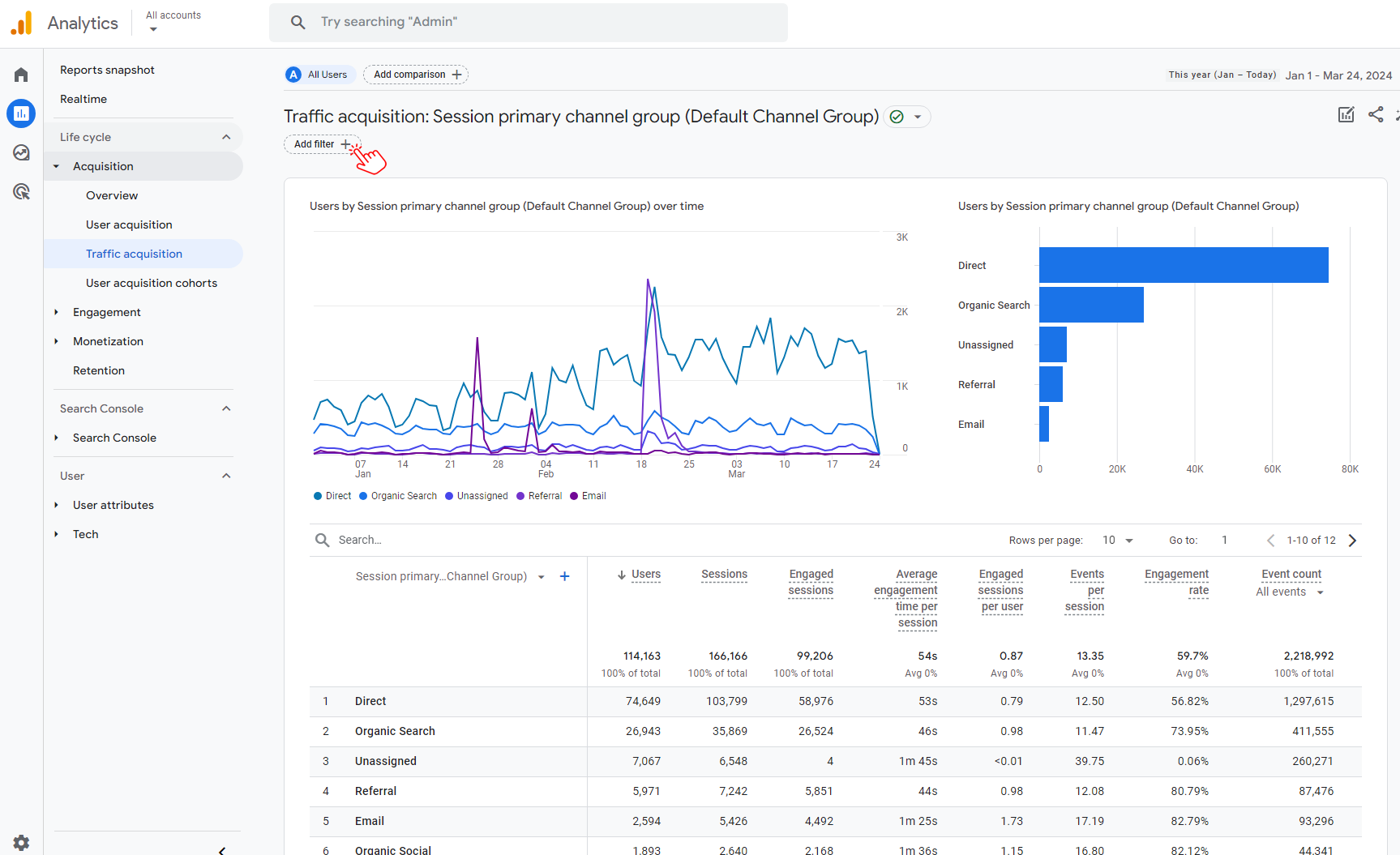A solid online presence is indispensable for businesses and individuals in the digital age. While there are numerous ways to build this presence, organic search remains one of the most potent and cost-effective strategies.
Organic search refers to the unpaid listings on search engine results pages (SERPs) determined by the search engine’s algorithms. Harnessing the power of organic search can significantly enhance your visibility, credibility, and, ultimately, your success online.
Understanding Organic Search
Organic search results are calculated through the search engine’s natural algorithms without any influence from paid advertising.
Many users consider these results more trustworthy than paid advertisements because they are determined by relevance to the search query and the quality of the content.
Why Organic Search Matters
Credibility and Trust: Users perceive organic listings as more credible and authoritative than paid ads. A solid organic presence suggests that your site is relevant, helpful, and a respected authority in your field.
Cost-Effectiveness: Unlike paid search strategies, which require ongoing funding to maintain visibility, organic search leverages your content to attract traffic without direct costs per click. This makes it a sustainable long-term investment.
Higher Engagement and Conversion Rates: Organic search traffic often leads to higher engagement and conversion rates. Users who find your website through organic search are typically looking for something specific, which means they are more likely to be interested in your products or services.
Strategies to Enhance Your Organic Search Presence
Keyword Research: Identifying the right keywords is fundamental. Use tools like Google Keyword Planner, Ahrefs, or SEMrush to find keywords relevant to your niche but not overly saturated.
High-Quality Content Creation: Content is king in SEO. Creating informative, engaging, and original content that addresses your audience’s needs can dramatically improve your organic search rankings. Regularly updating your website with fresh content also helps to keep your rankings high.
On-Page Optimization: This involves optimizing individual web pages to rank higher and earn more relevant traffic. It includes optimizing tags, URLs, and images and ensuring that the content includes targeted keywords.
Off-Page Optimization: Building backlinks from other reputable websites is crucial. Google views these links as votes of confidence from external sources, which can significantly boost your site’s authority and rankings.
Technical SEO: Ensure your website is technically optimized to facilitate better indexing. This includes improving site speed, making your site mobile-friendly, and creating a sitemap.
User Experience (UX): Search engines prioritize sites that provide a good user experience. This includes easy navigation, fast loading times, and a responsive design that works across all devices.
Understanding Organic Search in Google Analytics
Google Analytics categorizes website traffic into various sources: organic search, direct, referral, social, and paid search. Organic search traffic specifically comes from unpaid listings on search engines like Google, Bing, Yahoo, and others. This type of traffic is essential for understanding the effectiveness of your search engine optimization (SEO) efforts and how well your website content matches searchers’ intent.
Key Metrics for Organic Search in Google Analytics
- Users and Sessions:
- Users: The number of unique visitors who arrived at your site through organic search.
- Sessions: The number of visits where a single user can have multiple sessions.
- Organic Keywords:
- The search terms users entered into search engines to find your website. While Google Analytics provides limited keyword data due to privacy policies, integrating Google Search Console can offer more insights.
- Landing Pages:
- The specific pages on your website where organic search traffic lands. This helps identify which content is attracting the most search traffic.
- Bounce Rate:
- The percentage of visitors who leave your site after viewing only one page. A high bounce rate might indicate that your landing page content doesn’t match the search intent or needs improvement.
- Average Session Duration:
- The average amount of time visitors spend on your site. Longer session durations typically indicate more engaged users.
- Conversions and Goals:
- The actions visitors complete on your site include filling out a form, making a purchase, or signing up for a newsletter. Tracking conversions from organic search helps measure the ROI of your SEO efforts.
How to View Organic Search Data in Google Analytics
To access organic search data in Google Analytics, follow these steps:
You will see a breakdown of different traffic sources in the Channels report. Click on “Organic Search” to view detailed metrics related to your organic search traffic.
Login to Google Analytics:
Navigate to your Google Analytics account and select the property you want to analyze.
Go to Acquisition Reports:
In the left-hand sidebar, click on “Acquisition” to expand the menu.
Select All Traffic:
Under “Acquisition,” click on “All Traffic” and then select “Channels.”

Examples of Organic Search Results
Blog Posts and Articles
Informative blog posts and articles that answer user queries often appear in organic search results. For example, a search for “how to train for a marathon” might return blog posts from fitness websites and personal blogs.
Product Pages
E-commerce sites with well-optimized product pages can appear in organic search results for relevant product searches. For example, searching for “best running shoes” might display product listings from various online retailers.
Informational Pages
Pages that provide detailed information on a topic, such as Wikipedia entries, government resources, or educational sites, are commonly found in organic search results.
Local Business Listings
Local SEO practices can help businesses appear in organic results for local searches. For instance, “pizza places near me” might show local restaurant websites and directory listings.
Conclusion
Organic search results are a fundamental aspect of how users find information online. Achieving high rankings in these results through effective SEO practices can significantly enhance a website’s visibility, credibility, and traffic.
By understanding the factors that influence organic rankings and continuously optimizing a website’s content and technical aspects, businesses can capitalize on the benefits of organic search traffic.





